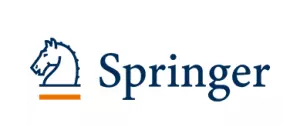
Welcome
In the last decades, more and more data is being stored in databases. To understand the past and perform prediction from this data, machine learning has become a key research area, with highly effective techniques and models such as deep learning, clustering, reinforcement learning, regression and anomaly detection. But many machine learning techniques operate as black boxes. Hence, an alternative to traditional machine learning that is being studied is pattern mining. It aims at developing algorithms to find patterns in data that meet a set of user-defined constraints. Pattern mining algorithms may not be as effective as traditional machine learning for prediction tasks but can uncover patterns that are easily interpretable.
Although, machine learning and pattern mining have been studied for many years, and have many applications, a key issue is that most studies focus on processing simple data types such as relational data and do not consider other important aspects such as the time dimension. With the emergence of new applications such as the internet of things, vehicular networks, sensor networks and multimedia applications, it has become crucial to process complex data. This encompasses various complex data types such as temporal data, streaming data, spatial data, multimedia data, text data, heterogeneous data, and graph data. Adapting existing machine learning and pattern mining models to process complex data requires to solve many hard challenges such as how to store and access the data efficiently, and how to deal with concept drifts, incremental updates, and how to merge multiple views and models built from data. Besides, another important problem that must be dealt with is how to scale current machine learning and pattern mining techniques to handle big complex data.
Aim and Scope
The 1st Workshop on Pattern mining and Machine learning in Big complex Databases (PMDB 2022) aims at providing a place for researchers from the fields of machine learning, pattern mining and database to present and exchange ideas about how to adapt and develop techniques to process and analyze big complex data.
The scope of PMDB 2022 encompasses many topics that revolves around database technology, machine learning, data mining and pattern mining. These topics include but are not limited to:
- Artificial intelligence, machine learning and pattern mining models for analyzing big complex data
- Database engines for storing and querying big complex data
- Distributed database systems
- Data models and query languages
- Distributed and parallel algorithms
- Real-time processing of big data
- Nature-inspired and metaheuristic algorithms
- Multimedia data, spatial data, biomedical data, and text
- Unstructured, semi-structured and heterogeneous data
- Temporal data and streaming data
- Graph data and multi-view data
- Uncertain, fuzzy and approximate data
- Visualization and evaluation of big complex data
- Predictive models for big complex data
- Privacy-preservation and security issues for big complex data
- Explainable models for big complex data
- Interactive data analysis
- Open-source software and platforms
- Applications in domains such as finance, healthcare, e-commerce, sport and social media
Publication
The papers accepted by PMDB 2022 will be published in a combined volume with other DASFAA-2022 workshops in the Lecture Notes in Computer Science (LNCS) series published by Springer, and indexed by both LNCS and DBLP.
A "best paper award" will be given for the PMDB workshop.
Contact
For any questions, please contact the organizing committee.


